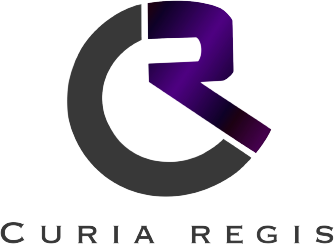In the vibrant financial landscape of fund management in Singapore, fund management companies navigate a complex web of counterparties, valuation methodologies and standards to ensure the accurate determination of a fund’s net asset value. Central to this process is the establishment of a robust fund valuation policy. This article provides insights into the intricacies of fund valuation policies in Singapore, shedding light on their importance, operational mechanisms, and essential components.
Why Fund Valuation Policies are important?
Singapore, as a global financial hub, places a premium on maintaining transparency and upholding the highest standards of financial integrity. Fund valuation serves as the cornerstone for fair pricing, risk management, and regulatory compliance. A fund valuation policy is also an important part of a fund’s initial offering documents. It is important to note that fund valuation policies are flexible, can and should be reassessed, usually annually to be sure it fits the stage and type of investments the fund owns. Implementing effective valuation policies not only safeguards investor interests but also strengthens Singapore’s position in the international fund management arena.
How do Fund Valuation policies work?
Valuation policies establish the standardized framework adopted by a fund for asset valuation. This framework comprises two integral components: a paired valuation approach and an allocation method. The valuation approach is instrumental in determining the implied value of the underlying asset, while the allocation method strategically allocates this value among all equity classes in the company. Valuation and Allocation are usually interconnected. Although the valuation policy defines the fund’s primary approach and method pairing, it may also encompass criteria for adopting an alternative pairing if necessary.
What are the fund valuation methods for Private Equity Firms and Public Funds/Hedge Funds?
| Market Approach |
Private Equity: This method involves valuing an investment based on comparable transactions in the market. Private equity firms may look at recent transactions involving similar companies or assets to estimate the value of their investments. Public Funds/Hedge Funds: Publicly traded securities are often valued based on market prices. Hedge funds and other investment managers may use market-based valuation methods, such as the market approach or comparable company analysis, to assess the value of their holdings relative to similar assets trading in the market. |
| Income Approach |
Private Equity: The income approach values an investment based on its expected future cash flows. Private equity firms may use discounted cash flow (DCF) analysis to estimate the present value of future cash flows generated by the investment. A DCF is based on the principle that the value of an investment is determined by the sum of its expected future cash flow. Public Funds/Hedge Funds: Hedge funds may use DCF analysis to estimate the intrinsic value of individual stocks or other securities in their portfolios. |
| Cost Approach | Private Equity: This method values an investment based on the cost of acquiring or developing similar assets. Private equity firms may consider the original cost of acquiring the investment, adjusted for any changes in value over time. |
| Relative Valuation | Public Funds/Hedge Funds: Relative valuation methods involve comparing the valuation of a security to certain financial metrics, such as earnings, revenue, or book value, of comparable companies or assets. Hedge funds may use multiples analysis, such as price-to-earnings (P/E) ratio or price-to-book (P/B) ratio, to assess the relative value of securities in their portfolios. |
| Net Asset Value (NAV) | Private equity funds and Hedge Funds often calculate the NAV of their investments based on the fair market value of the underlying assets, minus any liabilities. This can provide a snapshot of the fund’s overall value at a given point in time |
| Option Pricing Models | Private equity funds and Hedge Funds: For investments with complex financial structures or uncertain future cash flows, private equity firms and hedge funds may use option pricing models, such as Black-Scholes, to estimate the value of the investment as an option on underlying assets. Option Pricing Models is a mathematical model used to calculate the theoretical value of financial options. Options are financial derivatives that give the holder the right, but not the obligation, to buy (call option) or sell (put option) a specific asset at a predetermined price (strike price) on or before a specified date (expiration date). |
| Multiples Analysis | Private equity firms: This method involves comparing the valuation of an investment to certain financial metrics, such as earnings, revenue, or book value, of comparable companies. Private equity firms may use multiples analysis to gauge the relative value of their investments in relation to industry peers. |
| Mark-to-Market (MTM) | Hedge funds: often use MTM accounting to value their holdings at current market prices. This method values at the assets based on their current market value instead of their historical/previous value and cost. This approach provides transparency and reflects changes in the value of the portfolio over time. |
| Fair Value Accounting | Hedge funds: This approach is usually used for hard-to-value securities. It involves estimating the value of these securities based on observable market inputs or using valuation techniques such as DCF analysis. Fair Value Accounting is essentially the practice of calculating the businesses assets and liabilities at the current market value. |
What should be included in a Fund Valuation policy.
-
- Regulatory Compliance
Fund managers must align their valuation policies with the regulatory framework provided by the Monetary Authority of Singapore (MAS) in the Guidelines on Licensing, Registration and Conduct of Business for Fund Management Companies [SFA 04-G05] (“the Guidelines”). Adherence to the Guidelines ensures consistency and compliance.
-
- Frequency of Valuation
Policies should stipulate the frequency of valuations, considering the nature of the fund and its underlying assets.
-
- Valuation Methodologies
Clearly outline the methodologies used for valuing different asset classes, emphasizing adherence to the International Valuation Standards Council (IVSC) principles.
-
- Fair Value Determination
Provide a clear definition of fair value, incorporating observable market prices and, where necessary, reliable valuation techniques.
-
- Risk Management Protocols.
Recognize and address risks associated with the valuation process. Risk management protocols should be outlined to ensure a comprehensive approach.
-
- Independence and Transparency.
Fund Valuation policies should emphasize on the independence of the valuation process and establish transparency in decision-making. This can be achieved through the appointment of valuation committees or independent third-party pricing services.
-
- Pricing Services and Data Sources.
Clearly articulate the use of pricing services and the selection of data sources to ensure reliability and consistency in the valuation process.
-
- Escalation Procedures.
It is essential that a fund valuation policy incorporates escalation procedures to address any discrepancies or challenges in the valuation process promptly. This ensures swift resolution and minimizes the impact on fund performance.
-
- Disclosure Practices.
Fund Valuation policies should prioritize disclosure practices, ensuring that investors are informed about the fund’s valuation methodologies, pricing frequency, and any material events affecting the valuation process.
In conclusion, fund valuation policies provide clarity and transparency to investors on the net asset value of their funds. It assists to provide a specific framework on how the valuation process will be handled, depending on the type of funds managed on a case-by-case basis. It mitigates any room for confusion as it should define the fund managers risk management protocols, escalation, and disclosure practices.
How can we help?
Our Singapore-based team plays a pivotal role in not only providing regulatory and compliance support but also assisting in the development of the policies and procedures for organizations striving to adhere to the MAS requirements across the fund management space.
Contact us to learn more




